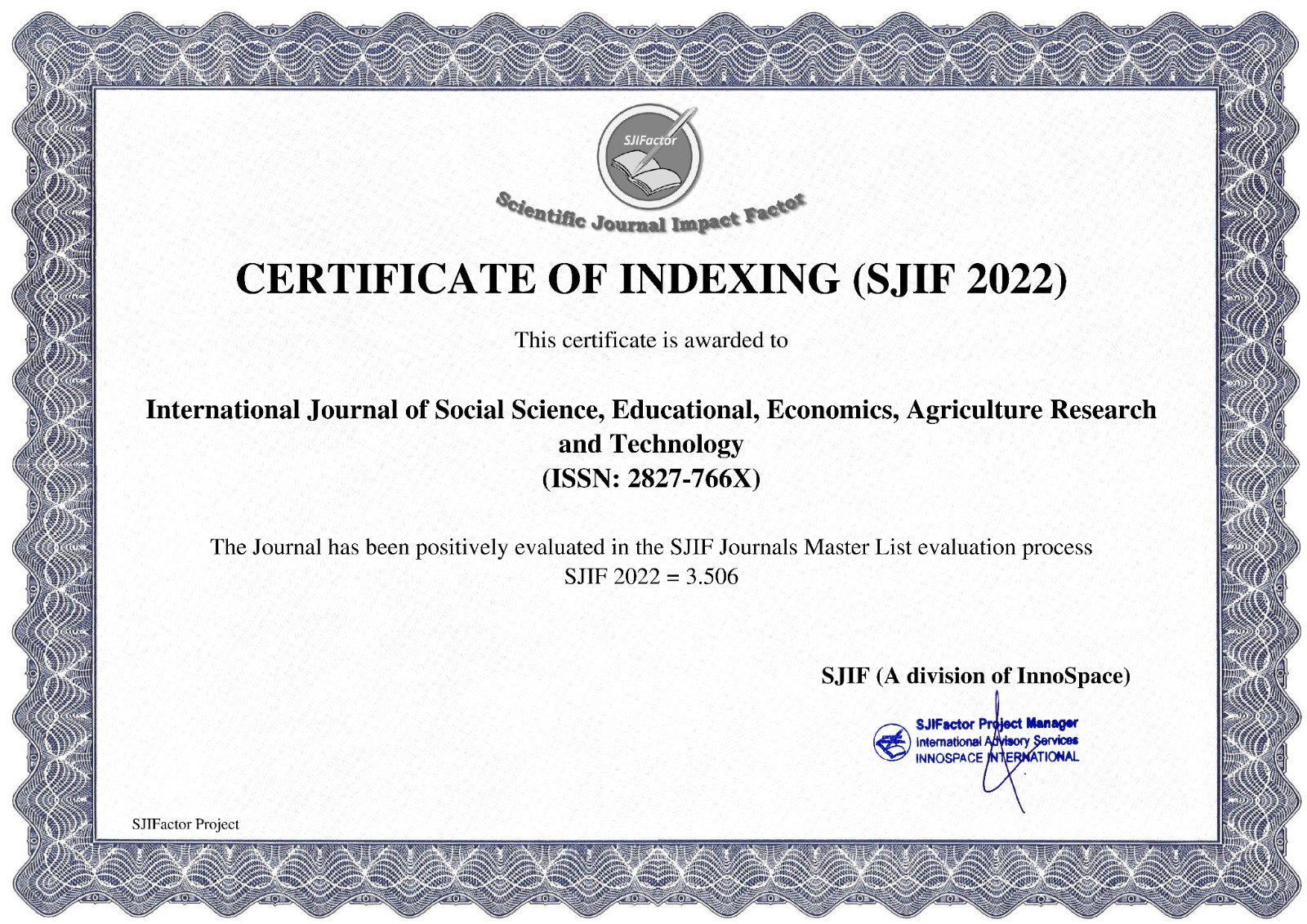THE RELATIONSHIP BETWEEN PEER SOCIAL SUPPORT AND SUBJECTIVE WELFARE IN VIEW OF GENDER OF VOCATIONAL HIGH SCHOOL STUDENTS
Main Article Content
Lijma Uliana Ritonga
Nefi Darmayanti
Suaidah Lubis
The purpose of this study was to determine the relationship between peer social support and subjective well-being in terms of the gender of SMK students in Tanjung Morawa. In this study using an explanatory quantitative approach. A sample of 192 based on random sampling technique. Using two psychological scales, namely the scale of subjective well-being and peer social support. In processing the data used normality test, linearity test, and hypothesis testing. The results showed that there was a significant relationship between peer social support and students' subjective well-being. The higher the peer social support, the higher the subjective well-being, and vice versa. There is no significant difference in subjective well-being between male and female students. This states that both male and female students have the same level of subjective well-being. It is hoped that the school can improve the subjective well-being of students by increasing the social support of students' peers, through entering the community they want, providing space to talk to friends, holding school vent events and other activities. Students are expected to be able to improve subjective well-being by: getting involved in school sharing events, communicating feelings and emotions in various situations such as feeling pleasant, having positive expectations in the learning process, entering the community they want. It is hoped that the school can improve the subjective well-being of students by increasing the social support of students' peers, through entering the community they want, providing space to talk to friends, holding school vent events and other activities. Students are expected to be able to improve subjective well-being by: getting involved in school sharing events, communicating feelings and emotions in various situations such as feeling pleasant, having positive expectations in the learning process, entering the community they want. It is hoped that the school can improve the subjective well-being of students by increasing the social support of students' peers, through entering the community they want, providing space to talk to friends, holding school vent events and other activities. Students are expected to be able to improve subjective well-being by: getting involved in school sharing events, communicating feelings and emotions in various situations such as feeling pleasant, having positive expectations in the learning process, entering the community they want.
Azwar, S. (2013). Reliability and Validity. Learning Library.
Dan, A. (2014). Differences in subjective well-being.
Eni. (1967). 済無No Title No Title No Title. Angewandte Chemie International Edition, 6(11), 951–952., Noodle, 5–24.
Ginting, DCE (2015). Social Support from Parents, Orphanage Caregivers, and Peers as Predictors of Psychological Well-Being in Adolescents Living in Orphanages in Boyolali [Satya Wacana Christian University]. https://repository.uksw.edu/handle/123456789/9123
Habib, U. (2019). The Effect of Online Social Support on Subjective Welfare Moderated by Gender in High School Students. Manuscript Proceedings of Temilnas XI IPPI, September, 1–45.
Hamidah, & Wrastari, TA (2012). Exploratory study of successful aging through social support for the elderly in Indonesia and Malaysia. Human, 14(02), 108–119.
Mahardika, R. (2014). Wellbeing in the Perspective of Male and Female Students: A Review of Indigenous Psychology. http://eprints.ums.ac.id/id/eprint/31950
Maslihah, S. (2018). Academic Achievement of Smpit Assyfa Boarding School Students. Undip Psychology, 10(2), 103–114.
Perez, A. (2017). No 主観的健康感を中心とした在宅高齢者における 健康関連指標に関する共分散構造分析Title. BMC Public Health, 5(1), 1–8. https://ejournal.poltektegal.ac.id/index.php/siklus/article/view/298%0Ahttp://repositorio.unan.edu.ni/2986/1/5624.pdf%0Ahttp://dx. doi.org/10.1016/j.jana.2015.10.005%0Ahttp://www.biomedcentral.com/1471-2458/12/58%0Ahttp://ovidsp.ovid.com/ovidweb.cgi?T=JS&P
Putra, IP, & Sukmawati, NW (2020). Differences in Subjective Well-Being in terms of Gender and Marital Status in Civil Servants. Character : Journal of Psychological Research, 07(1), 1–5.
Putri, DR (2016). The Role of Social Support and Emotional Intelligence on Subjective Well-Being in Early Adolescents. Indigenous: Psychological Scientific Journal, 1(1), 12. https://doi.org/10.23917/indigenous.v1i1.1770
Rizki, RN, Subjective, K., Teenagers, P., & Iib, LK (nd). Rahmah Nur Rizki - Subjective Welfare of Adolescents in Class IIB Prison in Kualasimpang....
Rohman, IH, & Fauziah, N. (2016). RELATIONSHIP BETWEEN ADVERSTY INTELLIGENCE AND SCHOOL WELL-BEING (Study on Students of SMA Kesatrian 1 Semarang). Empathy, 5(2), 322–326.
Ronen, T., Hamama, L., Rosenbaum, M., & Mishely-Yarlap, A. (2016). Subjective well-being in adolescence: The role of self-control, social support, age, gender, and familial crisis. Journal of Happiness Studies.
Ryff, C. D. (1989). Happiness is everything, or is it? Explorations on the meaning of psychological well-being. Journal of Personality and Social Psychology. https://doi.org/https://doi.org/10.1037/0022-3514.57.6.1069
Santrock, JW (2018). Adolescence. McGraw-Hill Education.
Sardi, LN, & Ayriza, Y. (2020). The Influence of Peer Social Support on Subjective Well-Being in Adolescents Living in Islamic Boarding Schools. Acta Psychology, 2(1), 41–48. https://doi.org/10.21831/ap.v1i1.34116
Sina, Ni. (2022). Deadly Student Brawl in Medan, Only Puppet Child Dies. Compass. https://www.kompas.id/baca/nusantara/2022/11/26/tawuran-maut-antar-pelajar-di-medan-anak-semata-wayang-meninggal
Sugiyono. (2017). Quantitative, Qualitative and R&D Research Methodologies. Alphabet.
Wijayanti, PAK, & Sulistiobudi, RA (2018). Peer Relations as a Main Predictor of School Well-Being for Elementary School Students. Journal of Psychology, 17(1), 56. https://doi.org/10.14710/jp.17.1.56-67






















